Sounds of the world
We rarely talk about the sounds that we encounter when traveling and how they may differ by or even define a destination. We highlight the other senses—views from an overlook, the tastes of cuisine, the feeling of sand in our toes, and the scent of pine or the ocean, but we don’t talk about what we hear, which is pretty wild considering that for those without any hearing impairments, we are constantly surrounded by sound, even when we tune it out. Soothing sounds have even been shown to have positive effects on our moods. Sounds give us a sense of place, whether that’s the hustle and bustle of a large city or the seagulls calling out overhead. If you close your eyes, you may just be able to hear some of the moments described below.
Water
The sound of water varies greatly, from massive waterfalls like Victoria Falls that go deep into a canyon to small streams that bubble down Norway’s steep fjord slopes. The sound of waves are incredibly variable, as well. The gentle sound of a lake lapping at its shore is different from rolling surf on a beach, which is again different from crashing waves from an incoming storm along the rugged cliffs of Scotland. A trickle of water from a Japanese temple, lapping of water against a kayak in the tranquil lagoons of Palau, the splashing of wildebeest crossing a crocodile-infested river during their migration…water everywhere, yet the quality of the sounds is so diverse.
 Crunch
Those of us that live or travel in regions with deciduous trees and autumn know all too well the sound of dried leaves crunching underfoot that indicates the seasonal change. Likewise, the crunch of snow or ice under a heavy boot is equally distinct as you head out into the night to observe the Northern Lights as they color the Icelandic sky. Crunching on gravel with each step while walking the Camino de Santiago signifies something different—a physical, historical, and sometimes emotional journey. You can even hear elephants crunch away on tree bark and roots just a few feet away from the safari vehicle.
Crunch
Those of us that live or travel in regions with deciduous trees and autumn know all too well the sound of dried leaves crunching underfoot that indicates the seasonal change. Likewise, the crunch of snow or ice under a heavy boot is equally distinct as you head out into the night to observe the Northern Lights as they color the Icelandic sky. Crunching on gravel with each step while walking the Camino de Santiago signifies something different—a physical, historical, and sometimes emotional journey. You can even hear elephants crunch away on tree bark and roots just a few feet away from the safari vehicle.
 Wind
While wind doesn’t produce sound itself, it helps other things make sound. Patagonia is famous for its wind, which almost never stops. This means that the constant sound of rustling leaves and grasses ebbing and intensifying based on the gusts, is the permanent background noise for hiking in the region. Just as people in cities become accustomed to the whoosh of cars and the noise of sirens, the people of Patagonia barely notice the wind. In the Himalayas, the flapping sound of prayer flags is ubiquitous when visiting temples or walking a trail to a stupa. And if you stop in a forest, you’ll hear the creaking of limbs and trunks as trees sway in the breeze they catch in their canopy.
Wind
While wind doesn’t produce sound itself, it helps other things make sound. Patagonia is famous for its wind, which almost never stops. This means that the constant sound of rustling leaves and grasses ebbing and intensifying based on the gusts, is the permanent background noise for hiking in the region. Just as people in cities become accustomed to the whoosh of cars and the noise of sirens, the people of Patagonia barely notice the wind. In the Himalayas, the flapping sound of prayer flags is ubiquitous when visiting temples or walking a trail to a stupa. And if you stop in a forest, you’ll hear the creaking of limbs and trunks as trees sway in the breeze they catch in their canopy.
 Food
What sound does beer make? If you’re in an pub, it makes a satisfying thump on the wooden bar when the bartender serves up your pint. Sawing a loaf of crusty, artisan bread for a trailside picnic can make your mouth water. The sound of popping and decanting bottles is familiar at winery visits. In Morocco, tea sounds a bit like wine as it’s poured from high above the glass. If you’re at a traditional restaurant in Argentina, you’ll no doubt hear the sizzle of meat on the barbecue. Fancy a sweet while out an about? Nothing like the satisfying snap of piece of chocolate bar. Hungry yet?
Food
What sound does beer make? If you’re in an pub, it makes a satisfying thump on the wooden bar when the bartender serves up your pint. Sawing a loaf of crusty, artisan bread for a trailside picnic can make your mouth water. The sound of popping and decanting bottles is familiar at winery visits. In Morocco, tea sounds a bit like wine as it’s poured from high above the glass. If you’re at a traditional restaurant in Argentina, you’ll no doubt hear the sizzle of meat on the barbecue. Fancy a sweet while out an about? Nothing like the satisfying snap of piece of chocolate bar. Hungry yet?
 Bells
At Buddhist temples, a small bell chimes with each full rotation of the larger prayer wheels. It can be almost meditative. Meanwhile, while hiking in the Alps, you’re never far from echoing bells. Church bells ring out the hours from iconic steeples that dot valleys. All over the world, bells are worn by livestock, from giant Swiss cowbells to smaller ones for sheep and goats. The cacophonous chorus of a herd of animals with noisy necklaces creates a unique and charming auditory backdrop.
Bells
At Buddhist temples, a small bell chimes with each full rotation of the larger prayer wheels. It can be almost meditative. Meanwhile, while hiking in the Alps, you’re never far from echoing bells. Church bells ring out the hours from iconic steeples that dot valleys. All over the world, bells are worn by livestock, from giant Swiss cowbells to smaller ones for sheep and goats. The cacophonous chorus of a herd of animals with noisy necklaces creates a unique and charming auditory backdrop.
 Quiet
And sometimes, you may notice a lack of sound, like the quiet during or shortly after a snowfall, as fluffy snow (like in Finnish Lapland), absorbs sound and creates a dampening effect. Those who have witnessed total solar eclipses observe that birdsong quiets as the eclipse progresses and sometimes stops completely during totality. In remote places all over the world, from the Namib Desert to a meditation cave in eastern Bhutan, there are fewer sounds—specifically, fewer manmade sounds. Take a moment and relish in that. And wherever you are, be present and aware of all that is around you.
Quiet
And sometimes, you may notice a lack of sound, like the quiet during or shortly after a snowfall, as fluffy snow (like in Finnish Lapland), absorbs sound and creates a dampening effect. Those who have witnessed total solar eclipses observe that birdsong quiets as the eclipse progresses and sometimes stops completely during totality. In remote places all over the world, from the Namib Desert to a meditation cave in eastern Bhutan, there are fewer sounds—specifically, fewer manmade sounds. Take a moment and relish in that. And wherever you are, be present and aware of all that is around you.
 Matt Holmes is the Founder & President of Boundless Journeys. Boundless Journeys is an award-winning tour operator that goes off the beaten path for immersive and authentic travel experiences.
If you would like to be a guest blogger on A Luxury Travel Blog in order to raise your profile, please contact us.
Matt Holmes is the Founder & President of Boundless Journeys. Boundless Journeys is an award-winning tour operator that goes off the beaten path for immersive and authentic travel experiences.
If you would like to be a guest blogger on A Luxury Travel Blog in order to raise your profile, please contact us.
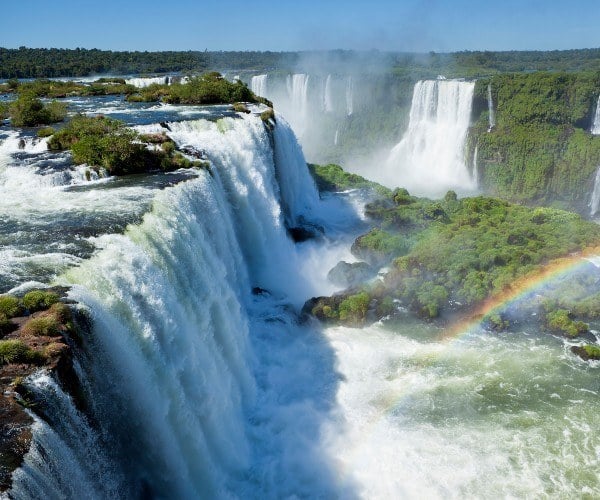 Crunch
Those of us that live or travel in regions with deciduous trees and autumn know all too well the sound of dried leaves crunching underfoot that indicates the seasonal change. Likewise, the crunch of snow or ice under a heavy boot is equally distinct as you head out into the night to observe the Northern Lights as they color the Icelandic sky. Crunching on gravel with each step while walking the Camino de Santiago signifies something different—a physical, historical, and sometimes emotional journey. You can even hear elephants crunch away on tree bark and roots just a few feet away from the safari vehicle.
Crunch
Those of us that live or travel in regions with deciduous trees and autumn know all too well the sound of dried leaves crunching underfoot that indicates the seasonal change. Likewise, the crunch of snow or ice under a heavy boot is equally distinct as you head out into the night to observe the Northern Lights as they color the Icelandic sky. Crunching on gravel with each step while walking the Camino de Santiago signifies something different—a physical, historical, and sometimes emotional journey. You can even hear elephants crunch away on tree bark and roots just a few feet away from the safari vehicle.
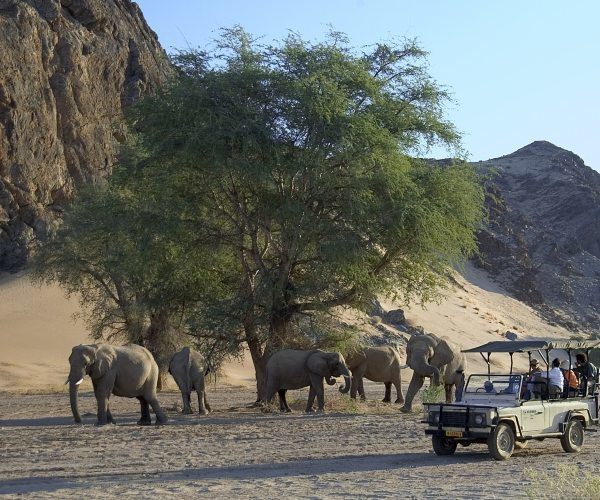 Wind
While wind doesn’t produce sound itself, it helps other things make sound. Patagonia is famous for its wind, which almost never stops. This means that the constant sound of rustling leaves and grasses ebbing and intensifying based on the gusts, is the permanent background noise for hiking in the region. Just as people in cities become accustomed to the whoosh of cars and the noise of sirens, the people of Patagonia barely notice the wind. In the Himalayas, the flapping sound of prayer flags is ubiquitous when visiting temples or walking a trail to a stupa. And if you stop in a forest, you’ll hear the creaking of limbs and trunks as trees sway in the breeze they catch in their canopy.
Wind
While wind doesn’t produce sound itself, it helps other things make sound. Patagonia is famous for its wind, which almost never stops. This means that the constant sound of rustling leaves and grasses ebbing and intensifying based on the gusts, is the permanent background noise for hiking in the region. Just as people in cities become accustomed to the whoosh of cars and the noise of sirens, the people of Patagonia barely notice the wind. In the Himalayas, the flapping sound of prayer flags is ubiquitous when visiting temples or walking a trail to a stupa. And if you stop in a forest, you’ll hear the creaking of limbs and trunks as trees sway in the breeze they catch in their canopy.
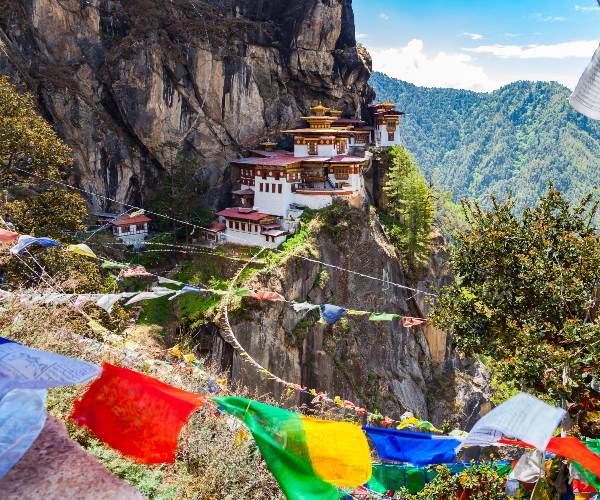 Food
What sound does beer make? If you’re in an pub, it makes a satisfying thump on the wooden bar when the bartender serves up your pint. Sawing a loaf of crusty, artisan bread for a trailside picnic can make your mouth water. The sound of popping and decanting bottles is familiar at winery visits. In Morocco, tea sounds a bit like wine as it’s poured from high above the glass. If you’re at a traditional restaurant in Argentina, you’ll no doubt hear the sizzle of meat on the barbecue. Fancy a sweet while out an about? Nothing like the satisfying snap of piece of chocolate bar. Hungry yet?
Food
What sound does beer make? If you’re in an pub, it makes a satisfying thump on the wooden bar when the bartender serves up your pint. Sawing a loaf of crusty, artisan bread for a trailside picnic can make your mouth water. The sound of popping and decanting bottles is familiar at winery visits. In Morocco, tea sounds a bit like wine as it’s poured from high above the glass. If you’re at a traditional restaurant in Argentina, you’ll no doubt hear the sizzle of meat on the barbecue. Fancy a sweet while out an about? Nothing like the satisfying snap of piece of chocolate bar. Hungry yet?
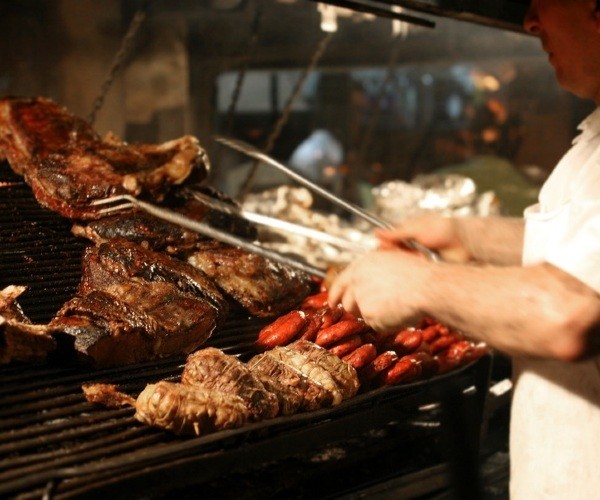 Bells
At Buddhist temples, a small bell chimes with each full rotation of the larger prayer wheels. It can be almost meditative. Meanwhile, while hiking in the Alps, you’re never far from echoing bells. Church bells ring out the hours from iconic steeples that dot valleys. All over the world, bells are worn by livestock, from giant Swiss cowbells to smaller ones for sheep and goats. The cacophonous chorus of a herd of animals with noisy necklaces creates a unique and charming auditory backdrop.
Bells
At Buddhist temples, a small bell chimes with each full rotation of the larger prayer wheels. It can be almost meditative. Meanwhile, while hiking in the Alps, you’re never far from echoing bells. Church bells ring out the hours from iconic steeples that dot valleys. All over the world, bells are worn by livestock, from giant Swiss cowbells to smaller ones for sheep and goats. The cacophonous chorus of a herd of animals with noisy necklaces creates a unique and charming auditory backdrop.
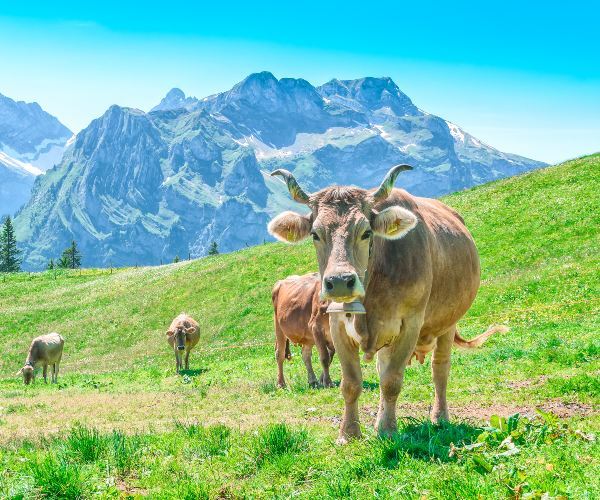 Quiet
And sometimes, you may notice a lack of sound, like the quiet during or shortly after a snowfall, as fluffy snow (like in Finnish Lapland), absorbs sound and creates a dampening effect. Those who have witnessed total solar eclipses observe that birdsong quiets as the eclipse progresses and sometimes stops completely during totality. In remote places all over the world, from the Namib Desert to a meditation cave in eastern Bhutan, there are fewer sounds—specifically, fewer manmade sounds. Take a moment and relish in that. And wherever you are, be present and aware of all that is around you.
Quiet
And sometimes, you may notice a lack of sound, like the quiet during or shortly after a snowfall, as fluffy snow (like in Finnish Lapland), absorbs sound and creates a dampening effect. Those who have witnessed total solar eclipses observe that birdsong quiets as the eclipse progresses and sometimes stops completely during totality. In remote places all over the world, from the Namib Desert to a meditation cave in eastern Bhutan, there are fewer sounds—specifically, fewer manmade sounds. Take a moment and relish in that. And wherever you are, be present and aware of all that is around you.
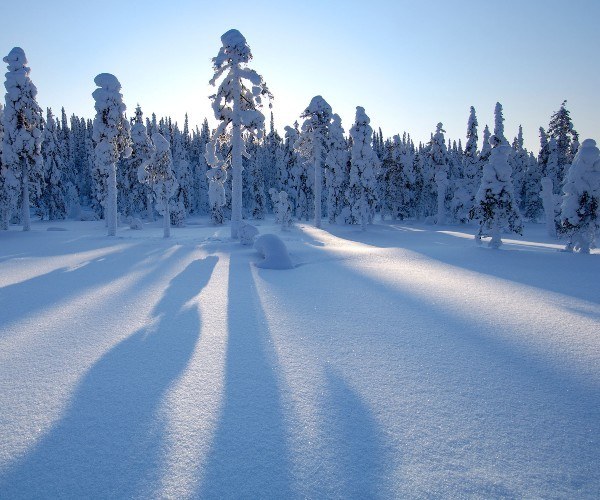 Matt Holmes is the Founder & President of Boundless Journeys. Boundless Journeys is an award-winning tour operator that goes off the beaten path for immersive and authentic travel experiences.
If you would like to be a guest blogger on A Luxury Travel Blog in order to raise your profile, please contact us.
Matt Holmes is the Founder & President of Boundless Journeys. Boundless Journeys is an award-winning tour operator that goes off the beaten path for immersive and authentic travel experiences.
If you would like to be a guest blogger on A Luxury Travel Blog in order to raise your profile, please contact us.Did you enjoy this article?
Receive similar content direct to your inbox.


As most of us have had to slow down this year and the world has slowed down too I think things have been a lot quieter lately. With less traffic around I think we’ve become more inclined to listen to the world around us. It’s been a good thing as we’ve appreciated the sounds of the natural world.
I read a lot of travel pieces. One of the things that I’ve noticed is that the best travel writers help you to hear a place as well. They describe the sound of the places they visit, you get a soundtrack too.
That picture of the cows reminds me of going up a ski-lift off season in Switzerland. It was eerily silent until we heard the sound of cow bells hundreds of feet below. Looking back I remember that sound more than the views.
What a beautifully emotive post. You’ve really brought to life these experiences so we can feel almost like we’re there just by what we hear around us. I’ve got to admit, living in a built up area with constant noise and traffic, I do love the idea of just natural sounds or even nothing at all just to relish the peace and quiet and, as you say, to be more mindful and enjoy the beauty of the moment.
I listen to the sounds of nature on my iPad or phone whenever I want to concentrate on my tasks at hand, yet I’ve never considered taking in the sounds whenever I travel. Even the city noises. Now, because I haven’t been able to go out of the country yet, I am realizing that I’m missing the sounds of bustle on the streets or a crowded night market. You really never know what you have until it’s been taken away from you. Though slowing down has its merits as well, because we then get to focus on things that we’ve taken for granted too.
I really loved your take on the sounds of travel. It reminds me of the time I was on safari, in my tent late at night, and heard the padded footsteps of a slow moving elephant pass by. It was a magical sound. Thank you for the thoughtful piece.
Fabulous article. Plenty of ‘quiet’ this year, sadly, but I’m hoping that will change.
I remembered reading this post. Now that I’ve started travelling again, I’ve tried to keep listening to the sounds in my mind. It really has helped me to make more of my adventures.
An absolutely fascinating post. I don’t know whether it’s worrying or reassuring that it doesn’t take long for us to adapt to the sounds around us. I remember struggling to sleep for 3 nights because of the noise of Manhattan traffic and then sleeping like a baby for the rest of the trip.